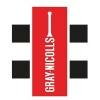A History of Somerset Cricket Board.
The Somerset Cricket Board (SCB) was created in 1994 when the ECB asked each of the thirty nine English counties to form ‘Cricket Boards’ as part of a reorganisation process for English cricket at both professional and recreational levels.
Prior to this much of the amateur game in our county was administered by a combination of Somerset Cricket Association and Somerset Schools, with stalwarts such as Tony Corner (Chairman) and Paul Wickham (Youth Development) running the Association. Whilst several of these gentlemen have sadly passed away, some are still in post twenty years on, such as Roger Snelling (SCB Secretary,) John Davey (SCB Treasurer) and Chris Twort (Secretary Somerset Schools.)
Shortly after the first few months of SCB’s existence regrettably Tony Corner was taken seriously ill and as a result his replacement Chairman Tony Davies was given the task of negotiating with the County Cricket Club with a view to forming the newly labelled ‘Somerset County Cricket Board.’
It was quickly agreed that a group of Directors should be appointed representing both the professional and recreational side of the game in the county. As a result of these negotiations members of both SCB and SCCC were appointed to oversee affairs, with Richard Parsons at their helm. This group later included Giles Clarke, who would eventually move on to become ECB Chairman.
One of the Board’s first tasks was to appoint a Cricket Development Officer who would become a pivotal figure in the new organisation. We were fortunate to be able to select Andrew Moulding, who over the next fifteen years proved to be a most excellent choice. Supported capably by Chairman Tony Davies for much of this period, Andrew assembled a professional staff to work alongside him to provide support, advice and funding for all aspects of local cricket, and these core functions are broadly similar two decades on - helping clubs and leagues, constructing youth programmes, holding training courses for coaches, groundsmen and umpires, and offering advice on funding for facility improvement at two hundred local affiliated clubs.0
A few years on Somerset Schools Cricket Association agreed to hand over the responsibility for the running of all County youth teams to the Board. This fitted in with ECB’s new strategy, and over the next fifteen years boys’ age group coaching was overseen by a succession of SCCC coaches - Peter Robinson, Julian Wyatt and Peter Sanderson - up until 2011. More recently SCB has appointed their own full time Head Coach in the form of Greg Kennis, and his arrival underlines our determination to continue producing a steady stream of future young professionals for Somerset via a programme that is highly regarded and indeed envied by other much wealthier counties.
As part of the overall expansion, Women and Girls cricket has grown rapidly since the turn of the century, (we now have a full time Head Coach in the form of ex England cricketer Caroline Atkins,) and the SCB field six teams at various age groups. There has been a similar growth in the County Disability cricket programme, as well as the advent of Over 50’s and 60’s teams. All of these groups now enjoy a comprehensive coaching and match structure in their own right, such that the total of SCB fixtures is now in the region of two hundred a season.
In 2013 under the joint stewardship of Chairman Andy Curtis and Cricket Development Manager Andy Fairbairn the Board has become a limited liability company handling a vastly increased business turnover. It continues to offer all of the aforementioned activities but on an even bigger scale, as well as administering the successful Chance to Shine programme taking cricket to dozens of state schools around the county.
SCB now operates with five full time staff (Brian Hoyle & Edgar Herridge plus previously mentioned staff) based in the Centre of Excellence at the County Ground. Our Board of Directors include SCCC’s CEO Guy Lavender, President Roy Kerslake, and Chairman Andy Nash - a mix which in itself underlines a continuing fruitful partnership between the professional and recreational sides of the game – the prime objective first envisaged by the ECB twenty years ago.






